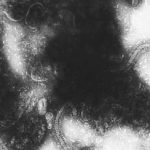1. In this phase 2a study, the RSVpreF vaccine was effective against symptomatic respiratory syncytial virus (RSV) infection as compared to placebo control.
2. The RSVpreF vaccine was not associated with any identifiable safety concerns.
Evidence Rating Level: 1 (Excellent)
Study Rundown: Human (RSV) causes illness in 3-7% of adults who are older than 65, resulting in approximately 177,000 hospitalizations and 14,000 deaths annually. Moreover, increased risk of severe disease among these adults is associated with age-related decreases in innate immunity and impaired cellular immune responses. The development of an RSV vaccine is therefore of high priority. The present study evaluated the RSVpreF vaccine, which has demonstrated greatly increased RSV-neutralizing titers in participants in phase 1-2 and 2b studies. However, there is a gap in knowledge as to understanding the safety, immunogenicity, and efficacy of RSVpreF vaccine in healthy adults. This study found that immunization with a single dose of RSVpreF vaccine provided protection against symptomatic RSV infection. This study was limited by the artificial nature of the experimental human challenge, a small sample size, and prescreening of participants for low baseline RSV-neutralizing titers as well as the younger age of the participants as compared to the vaccine target population. Nevertheless, these findings are significant, as they demonstrate that the RSVpreF vaccine is effective against symptomatic RSV infection.
Click to read the study in NEJM
Relevant Reading: Activity of Oral ALS-008176 in a Respiratory Syncytial Virus Challenge Study
In-Depth [randomized controlled trial]: This randomized, double-blind, exploratory study assigned participants in a 1:1 ratio to receive RSVpreF vaccine or placebo. Twenty-eight days after injection, participants were challenged intranasally with the RSV A Memphis 37b challenge virus and observed for 12 days. Patients who were between 18 and 50 years of age, previously healthy, and with low screening titers were eligible for the study. Patients who were older than 50 or had screening titers that were not in the lowest quartile of the population titer distribution were excluded from the study. The primary outcome was RT-qPCR-confirmed detectable RSV infection on at least two consecutive days with at least one clinical symptom, as well as RSV viral load measured by RT-qPCR from day two after challenge to discharge. Outcomes in the primary analysis were assessed via Farrington-Manning methods based on the intention-to-treat population. Based on the analysis, vaccine efficacy was determined to be 86.7% (95% Confidence Interval [CI], 53.8 to 96.5) for symptomatic RSV infection confirmed by detectable viral RNA on at least 2 consecutive days. The median RSV viral load as measured by RT-qPCR assay was 0.0 in the vaccine group and 96.7 in the placebo group. Furthermore, the geometric mean factor increased from baseline in RSV A-neutralizing titers 28 days after injection was significantly higher in the treatment group, as it was 20.5 (95% CI, 16.6 to 25.3) compared to 1.1 (95% CI, 0.9 to 1.3) in the placebo group. For safety, no serious adverse events were noted in either group. Overall, this study demonstrates that immunization with a single dose of RSVpreF provided significant protection against symptomatic RSV infection, and thus the vaccine should continue to be studied in a phase 3 efficacy study.
Image: PD
©2022 2 Minute Medicine, Inc. All rights reserved. No works may be reproduced without expressed written consent from 2 Minute Medicine, Inc. Inquire about licensing here. No article should be construed as medical advice and is not intended as such by the authors or by 2 Minute Medicine, Inc.


